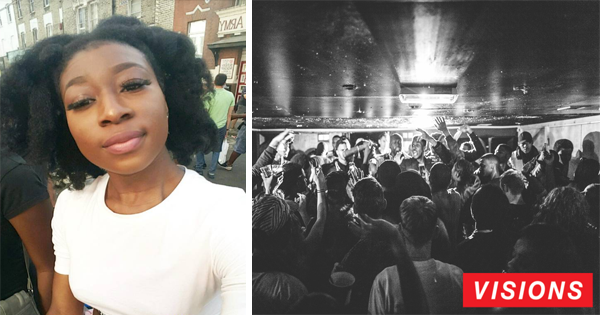Advertisement
19-year-old Katouche Goll was born with cerebral palsy, a condition that affects her muscles, physical mobility, and her posture. Goll can’t walk without the assistance of a pair of canes or crutches when she leaves her house, but she’s managed just fine on her own.
“I went to a nightclub the night before, I have stairs in my house, I went to [Notting Hill] carnival on Monday, I lived by myself at university, I do everything for myself,” she explained.
From the perspective of Visions Video Bar, however, Goll was a liability.
When Goll walked up to the club at 11:30pm on a Friday night, the bouncers thought she was just passing by. They were fairly surprised at her request to enter, asking several times if she was sure she knew what she was doing.
But when Goll didn’t back down, they changed tactics and said “something along the lines of ‘We’re sorry, but you can’t come in with your crutches because the venue is inaccessible for you,’” Goll recalled.
Goll spent a few more minutes trying to convince the club to let her in, but they were adamant about not letting her in. People who were in line to enter the club nearby all offered Goll their moral support, but she confessed, “It was very disheartening… I don’t normally cry but I started to cry. I just left eventually.”
“Cerebral palsy is a condition I was born with, so I fully understand my capabilities – they were turning me away because they thought they knew my condition more than me…” Goll explained. “This is what happens when you’re disabled: People always think they know better than you about the things you want.”
A spokesperson from the club acknowledged that Goll had been in touch with them during the day, asking about accessibility, but never once “mention[ed] her condition.”
They continued by saying the security that night had considered making an exception for Goll, but ultimately decided against it. “After observing her navigate the pavement and taking into consideration the capacity of the venue at time, potential alcohol consumption and the steep staircase leading down into the basement, it was considered too great a safety risk for all in attendance including her,” they explained.




